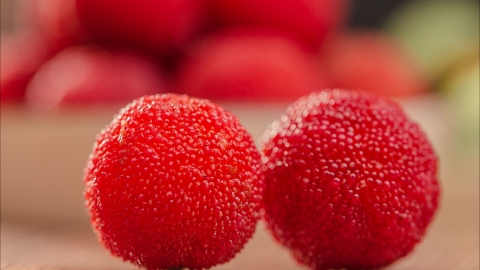Can children with diarrhea eat Chinese bayberries (Myrica rubra)?
When a baby has diarrhea, a small amount of cooked bayberry may be cautiously tried in cases of non-infectious, mild diarrhea without severe symptoms. However, it is not recommended for infectious diarrhea or moderate-to-severe diarrhea. If in doubt, consult a doctor in advance. Detailed explanation is as follows:

For non-infectious, mild diarrhea in babies caused by overeating or exposure to cold, without fever or vomiting, and with loose, mushy stools without pus or blood, a small amount of cooked bayberry may be given. After washing and cooking the bayberries, mash them into a paste and feed 1–2 teaspoons at a time. The fruit acids in bayberries become less irritating after cooking and may help regulate intestinal function. However, closely monitor the baby's response after feeding. If there is no bloating or increased frequency of bowel movements, cautiously continue feeding in small amounts.
Infectious diarrhea, caused by viral or bacterial infections, is often accompanied by fever, vomiting, and stools containing pus, blood, or mucus. Moderate-to-severe diarrhea is characterized by frequent and voluminous bowel movements, and signs of dehydration such as reduced urine output and listlessness. In such cases, bayberry should not be consumed. The fruit acids in bayberries may irritate the intestinal mucosa and worsen diarrhea, while the dietary fiber may accelerate intestinal motility, exacerbating the condition. Prompt medical attention should be sought, and treatment should follow medical advice. Priority should be given to clear liquid diets or temporary fasting, with other foods introduced only after diarrhea has significantly improved.
When a baby develops diarrhea, the first step should be to consult a pediatrician to determine the cause and receive appropriate treatment recommendations. At the same time, ensure adequate hydration and avoid foods that may worsen the diarrhea.








